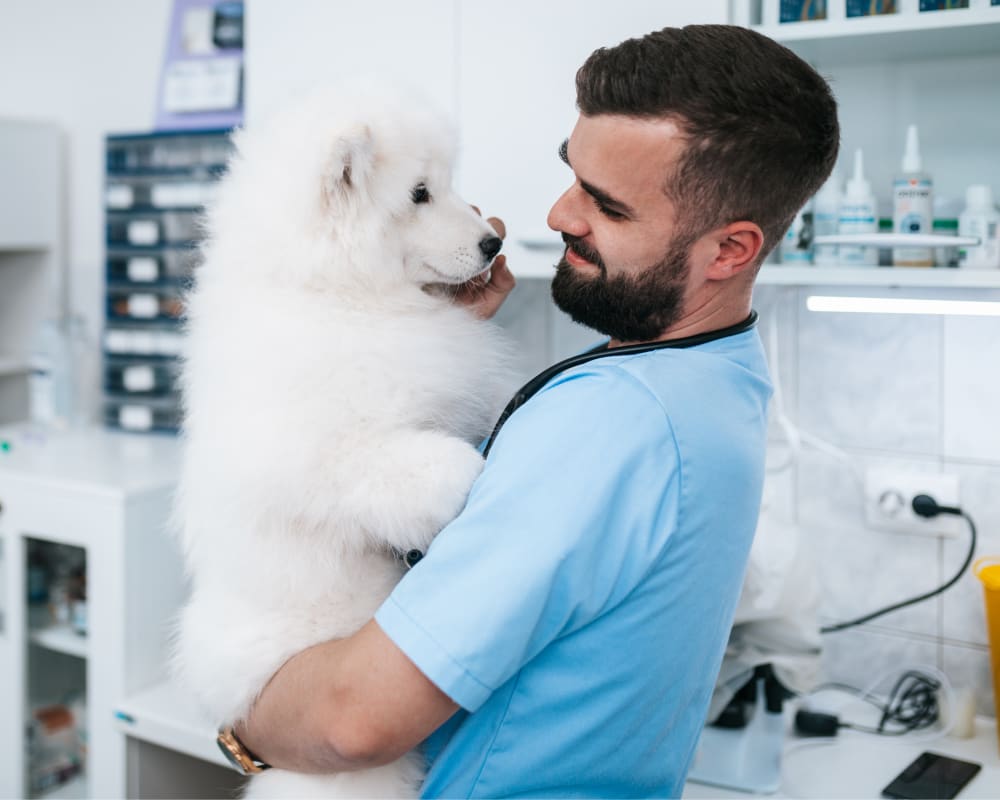Oral Surgery at Hale Veterinary Clinic
Surgical Services for Dogs & Cats
Sometimes, surgery is the only way to treat complex oral health conditions that cannot be resolved through other less-invasive treatment options.
At Hale Veterinary Clinic, we offer a variety of surgical procedures designed to help eliminate pain and restore your pet's oral health.
Just like any other dental procedure, we will administer anesthesia so your companion will feel comfortable while we perform their surgery.
We want you to feel fully informed and comfortable making the decision to go ahead with your pets procedure - that's why we'll take the time to make sure you understand all of the benefits, risks, and potential complications of surgery.

Surgical Procedures
At Hale Veterinary Clinic, we perform a variety of surgical procedures to treat disease in your pet's mouth, or to repair injuries sustained through trauma.
Our office in Guelph offers a variety of surgical services, including:
-
Tooth Extractions
A tooth extraction can be performed to remove badly damaged or decayed teeth. By doing this, our veterinarians can help reduce your pet's pain and help them regain their good oral health.
-
Tumour Removal
Oral growths are fairly common in pets. They may be benign (non-cancerous) growths, such as gingival hyperplasia, or malignant cancer, such as squamous cell carcinoma. Even benign growths can cause serious oral health problems if they grow too large.
Our veterinarian, Dr. Hamilton, performs oral tumour removal surgery to remove malignant or benign growths. Tumour removal surgery can not only eliminate cancerous and non-cancerous tumours, but can also help prevent malignant tumours from metastasizing to other parts of the body, resulting in a better prognosis.
Common Types of Oral Tumours in Dogs
Malignant melanoma is known for its aggressive nature and high spreading potential, making early detection and treatment crucial for improving your dog's prognosis.
Squamous cell carcinoma is another aggressive type of oral tumour that typically begins in the lining of the mouth and can quickly invade surrounding tissues.
Fibrosarcoma is typically seen in large-breed dogs. It originates from fibrous connective tissue and can cause pain, difficulty eating, and swelling in the affected area.
Common Types of Oral Tumours in Cats
Squamous cell carcinoma is a highly aggressive form of cancer that primarily affects the mouth and gums of cats. It often looks like an ulcer that won't heal and can cause a cat to have difficulty when eating and grooming. If left untreated, squamous cell carcinoma can spread to other parts of the body, such as the lymph nodes and lungs.
-
Facial Fracture Repair
Facial fractures in cats and dogs are a serious emergency and can result from various causes, such as trauma, accidents, or fights. They can cause significant pain and functional impairment.
By having a break surgically repaired, pain can be alleviated, normal jaw function can be restored, and potential complications, such as damage to the surrounding tissues and nerves, can be prevented.
Surgery to repair a jaw fracture involves careful evaluation and precise surgical techniques to ensure the best possible outcome. There are various strategies available, and each case needs to be assessed on its own to decide what technique to use.
-
Juvenile Dentistry
Juvenile dentistry plays a crucial role in ensuring a lifetime of healthy teeth and gums for our beloved pets. Just like humans, puppies and kittens can also experience dental problems as their face and jaws grow and develop as well as injuries.
Rambunctious young pets can hurt themselves while playing or chewing hard items, causing deciduous (baby) teeth to break. Deciduous teeth also have a habit of sticking around too long. If they don't fall out in time, removing them to make room for the adult tooth can prevent the two teeth from fighting for space in the mouth.
What We Do:
Oral Exams: During an exam, we check for dental issues, such as infections, or growths, that may affect a puppy or kitten’s health. Oral exams also allow our veterinarians to assess the development of teeth and provide guidance for at-home care.
Orthodontics: Orthodontics focuses on correcting dental and jaw abnormalities. It can involve the use of braces and other appliances to align teeth. This treatment can help prevent future dental issues and ensure proper tooth growth and development.
Primary Teeth Fractures: It is not uncommon for puppies or kittens to suffer a fracture to one or more of their primary teeth and the question often arises, “What do we need to do about these injuries?” The answer is: fractured primary teeth require immediate, complete and careful extraction.
Recovery & Care After Oral Surgery
The recovery period following oral surgery (including extractions) can vary but typically takes 10 to 14 days. Your pet's mouth may be uncomfortable following surgery, which we will manage with a variety of pain relief medications. You may notice swelling in the surgical area but don't worry, this is normal and will typically resolve over the first few days following surgery.
You'll want to keep an eye on your companion's behaviour during the healing process. You will have a follow-up appointment scheduled for your pet but if you notice any concerning changes before this, contact your veterinarian promptly.
To help your pet recover as quickly as possible, your veterinarian will prescribe a personalized recovery plan.
Accepting New Referrals
Hale Veterinary Clinic is accepting new referrals! If you are a veterinarian looking to refer a patient, please fill out our referral form. If you are a client whose pet has already been referred to us, learn more about what to expect at your pet's appointment.
